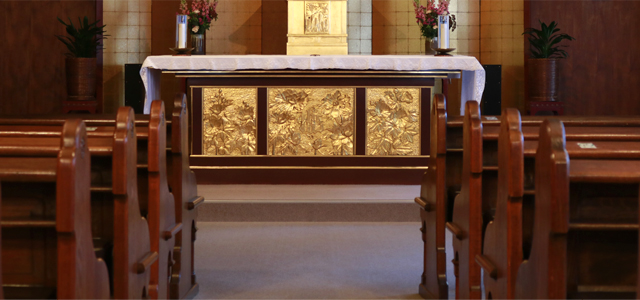
Catholic Q&A
I can understand it when you say you believe in the God that Jesus preached. However, that is not all. In Christianity, is Jesus himself worshipped as God?
That is a very sharp question. In fact this may perhaps be the most difficult issue in Christianity. Yet, since misunderstandings easily arise when people use expressions like “worship someone as God,” for the time being what I wish to say is, “one can encounter the true God only through Jesus.”
Of course, rephrasing it in that way does not alter the intricacy of the problem. This evokes within my mind the life of Jesus himself. When Jesus expounded the Gospel of the kingdom of God and gave witness to it through powerful works, a large crowd eagerly amassed around him. Nevertheless though, on a certain occasion people no longer followed Jesus, and he was left behind with a few devoted disciples. The reason for this was because what he spoke were absolutely the “words of God.”
The Jewish people were happy to hear the words of Jesus when they sounded pleasing to their ears. Yet, from the time they felt their expectations concerning the Messiah were betrayed, they refused to respond to his call. It was from there that the pathway of Jesus to the cross commenced. In chapter 8 of the Gospel of Mark, this turning point in the life of Jesus is presented in the form of his critical questions to his disciples. In that passage Jesus asked his disciples, “who do you say that I am?” On behalf of the disciples Peter replied, “you are the Messiah.” (Mark 8: 27~38). According to the account presented in the Gospel of Mark, from that point onwards Jesus began to gradually educate his disciples with reference to his suffering and death.
In chapter 6 of the Gospel of John the crowd disliked the words of Jesus, and so they left him and went away saying, “What an awful story. Who can listen to a story like this.” On that occasion, when Jesus asked the twelve, “Do you also want to go away?” On behalf of the twelve Peter once again made a confession of faith by replying, “Where are we to go Lord? You have the words of eternal life.” (John 6: 22~71).
If the Gospel Jesus communicated was merely a fine teaching about the kingdom of God, such confrontations would not have occurred. However, Jesus said that the kingdom of God was coming now through him, and he asked the people to make a decision of responding to his call. He said that those listening to him were listening to God, and those who rejected him were rejecting God. It contained the absolute claim that we can know the true God only through Jesus. In the Gospel of John, this fact is expressed by the words, “I am the way, the truth, and the life” (14: 6), and “Whoever has seen me has seen the Father” (14: 9).
By their experience of the resurrection, the disciples of Jesus came to know that what he had insisted upon all along was correct, and they came to believe that Jesus was the mediator between man and God. This is one of the characteristics of the Christian faith. That is, to believe that we can encounter God through Jesus, and through our union with Jesus, and through the very same love that God has for Jesus, God will love us as well. This manner of belief is Christian faith.
Even today, when speaking of Christianity to some person for the first time, I face difficulties with regard to this point. No matter how superbly I explain the teachings of Jesus, I find in the end that I simply cannot avoid this sort of a decisive confrontation. I know that people will without fail encounter someday the question of Jesus, namely, “who do you say I am?” It is there that they would have to make a decision. Would they be able to respond by saying, “You are the Christ. You are the one who reveals God to us in a decisive way. You are the word of God that gives us life?” Would they be able to answer by saying, “You are the one who decides the significance of my life, and without you my life has neither sense nor happiness?” Despite studying Christianity over a lengthy period, to see people retreat and go away in the face of this question, is indeed pitiable. However, I guess it cannot be helped. This is the most difficult part of Christianity, and yet, if we do not adopt an honest attitude here, we will cease to be Christians.
